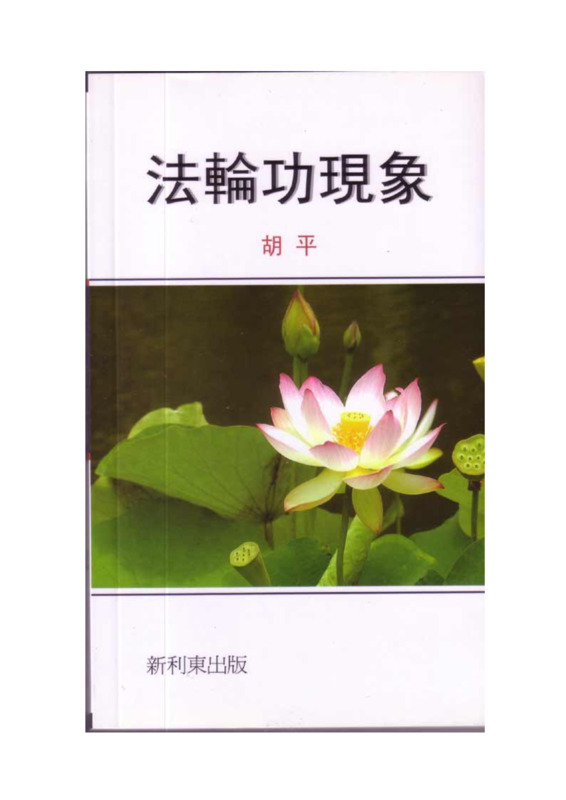Explore the collection
Showing 6 items in the collection
6 items
Book
Earthquake Insane Asylum
On May 12, 2008, when the Great Sichuan Earthquake struck, writer Liao Yiwu began to write "Chronicle of the Great Earthquake", which was serialized in <i>Democratic China</i> and reprinted on several Chinese websites. It had a wide impact. Liao went to Dujiangyan, Juyuan Township, Yingxiu and other earthquake-hit areas to conduct on-the-spot interviews. His travels and writings during the earthquake were reported and translated by many mainstream media.
In April 2009, Taiwan's Asian Culture Publishing published and distributed the traditional Chinese edition of <i>Earthquake Insane Asylum</i>, a pictorial and textual factual record that preserves the living conditions of the people during of the Sichuan earthquake.
Book
Hu Yaobang and the Vindication of Wrongful Convictions.
This book recounts Hu Yaobang's efforts to overturn people falsely accused of being "Rightists" during the Anti-Rightist Campaign of the 1950s. It is written by Dai Huang (1928-2016, formerly known as Dai Shulin), a Communist propagandist and later senior editor at the Xinhua News Agency, who was also persecuted in the Mao era and rehabilitated thanks to Hu's efforts.
This means that the book is not entirely objective–Dai does not analyze too closely Hu's history of slavishy following Mao's policies. Instead, he aims to capture the excitement felt by the hundreds of thousands who suffered in the Mao era and who were rehabilitated in the 1970s and '80s thanks to Hu. At 300,000 Chinese characters, or more than 200,000 English words, it is a weighty compendium that includes previously unreported details of famous public intellectuals and party members persecuted by the party and how Hu rehabilitated them. For example, Dai recounts the case of Ge Peiqi, who was a Communist Party spy who was toppled for his opposition to the party's corruption and privilege. Dai explains the case in depth and how Ge was eventually cleared.
Dai represented a liberal wing of the party that believed in the need for the party to address its mistakes. At his funeral people such as Du Daozheng (the editor of China Through the Ages 炎黄春秋) and Tie Liu (publisher of the alternative history journal 往事微痕) attended. The book also contains a preface by Li Rui, who participated in China Through the Ages and was also a mainstay of the party's liberal wing.
Book
Rethinking China's Democracy Movement
Author Hu Ping was involved in the Xidan Democracy Wall movement in the late 1970s and now lives in the United States.
He has successively chaired the pro-democracy publications <i>China Spring</i> and <i>Beijing Spring</i>. This book, published in 1992, analyzes the reasons for the failure of the June Fourth Movement and summarizes the lessons learned. The last two chapters suggest how to continue the pro-democracy movement in the future.
Book
The Last Landowner (Record of Chinese Grievances Volume 3 - Book 1)
Land reform is one of the important events that affected the course of Chinese history in the twentieth century. Liao Yiwu spent two years on and off from the end of 2005 to complete <i>The Last Landlord</i>. The book comprises interviews with land reform survivors. As the author says, "Based on the degree of physical and mental weakening of the interviewees, I estimate that in another five or six years, the history of the land reform as orally told by those who witnessed it will be completely untraceable."
Book
The Falun Gong Phenomenon
This book is a collection of several long articles and commentaries by Hu Ping on Falun Gong and the persecution and repression against Falun Gong practitioners. From an independent perspective, this book responds to a series of unfair criticisms and stigmatization of Falun Gong by the Chinese authorities and the public, calling on society to fight for the basic rights of Falun Gong practitioners who have been persecuted.
Book
On Freedom of Speech
“On Freedom of Speech” is a treatise by Hu Ping. It was first published in 1979. A revised version was published in 1980, when Hu ran for local elections at Peking University. The treatise was later published in Hong Kong in 1981 and again in a Chinese journal in 1986. Multiple publishing houses in China made plans to distribute the treatise in book form, but China’s anti-liberalization campaign prevented the books from publishing.
“On Freedom of Speech” explains the significance of freedom of speech, refutes misunderstandings and misinterpretations of freedom of speech, and proposes ways to achieve freedom of speech in China.
This document, provided by the author, also includes the content of the symposium held after the publication of “On Freedom of Speech” in 1986, as well as the preface written by the author in 2009 for the Japanese translation of this treatise.





